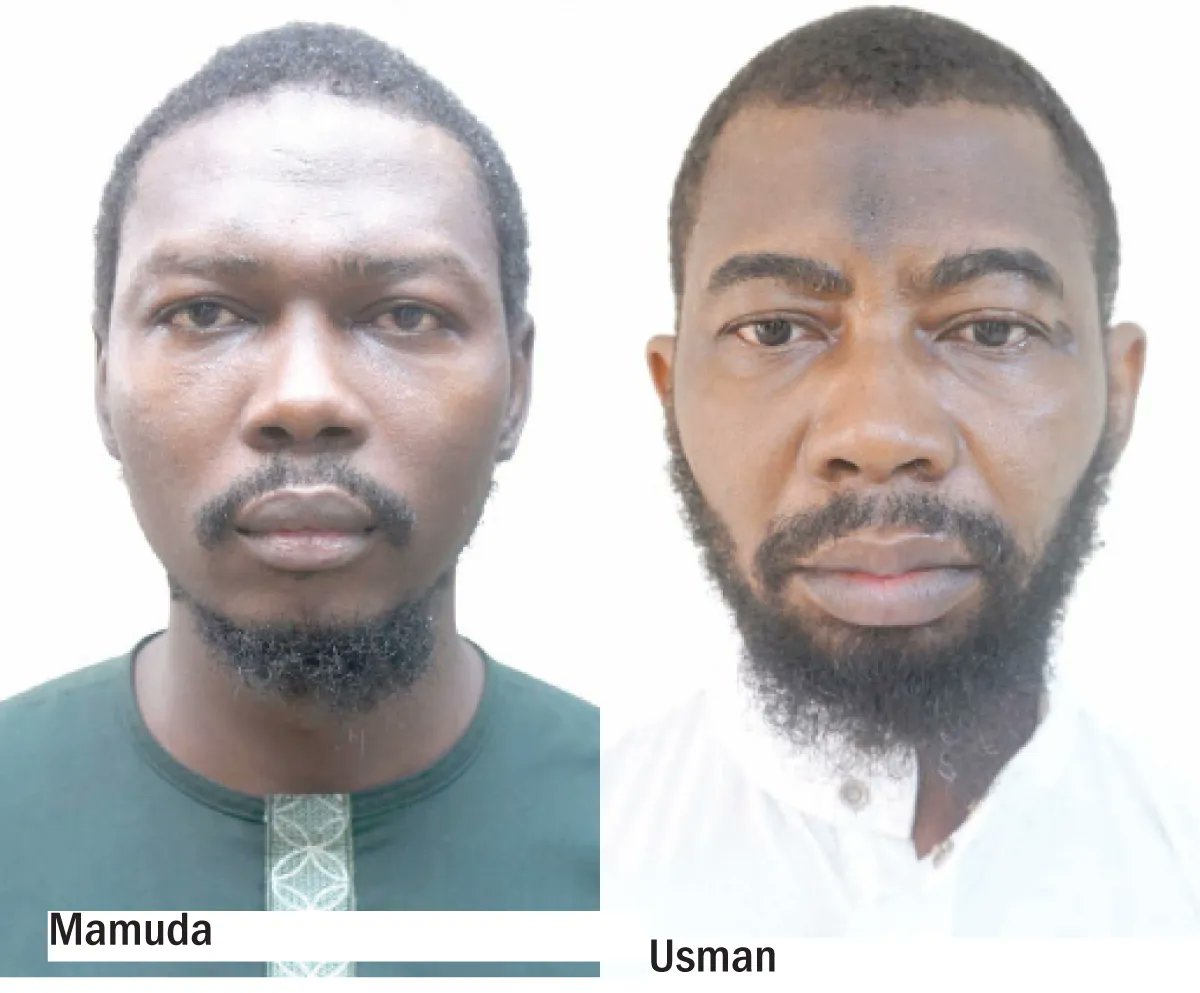
Kuje 2022 Jailbreak Masterminds Finally Captured by Security Operatives in Major Breakthrough

The long arm of the law has finally caught up with the two masterminds behind the 2022 Kuje jailbreak, an incident that shocked the nation and left Nigerians questioning the safety of correctional facilities across the country. Security operatives, after what has been described as a painstaking investigation spanning months, have arrested the two key figures believed to have orchestrated the daring attack that saw hundreds of inmates escape from the Kuje Medium Custodial Centre in Abuja. Their arrest marks a turning point in the relentless effort to bring justice to those responsible for one of Nigeria’s most audacious prison breaks in recent history.
The 2022 Kuje jailbreak remains one of the darkest chapters in the country’s correctional history. On the night of July 5, 2022, heavily armed gunmen stormed the facility, detonating explosives and engaging security personnel in a prolonged firefight. By the time the dust settled, over 600 inmates had escaped, including high-profile terrorists and hardened criminals. The incident threw the entire security architecture of Nigeria into question, as many wondered how such a heavily guarded prison located in the Federal Capital Territory could fall so easily to attackers. The jailbreak was not only an embarrassment to the authorities but also posed a major threat to national security as it put dangerous individuals back on the streets.
Investigations into the jailbreak have since been intense, with multiple arrests made in the months following the incident. Yet, the masterminds, the brains behind the operation, managed to evade capture for years. Their ability to stay hidden and coordinate movements while avoiding security dragnets baffled investigators and fueled speculation about the depth of the networks behind such organized attacks. Now, with the recent arrests, security operatives have delivered a huge blow to the criminal structures that facilitated the prison break.
According to reports, the two arrested individuals are believed to have been the architects who planned, coordinated, and funded the entire operation. Security sources revealed that they were deeply involved in terrorist activities and had links with networks that have, over time, carried out similar high-profile operations in Nigeria’s North. The operatives who effected the arrest are said to have worked through a combination of intelligence gathering, human surveillance, and inter-agency collaboration. Their capture is being hailed as a landmark victory for Nigerian security agencies that have long been criticized for their slow response and inability to apprehend high-profile fugitives.
The Kuje jailbreak had far-reaching consequences beyond the immediate escape of inmates. Many of the escapees, particularly those with terror links, were later linked to fresh attacks across the country. Communities in the North Central, North East, and even parts of the North West came under repeated assaults from bandits and insurgents who found strength in the release of their comrades. The jailbreak emboldened criminal elements and raised fears among citizens who began to question whether correctional centers were secure at all. With the masterminds now in custody, Nigerians are breathing a sigh of relief, but questions remain about how such a brazen attack could have been carried out in the first place.
Security analysts note that the arrest of the two masterminds is significant, but it must not mark the end of the story. For many, justice will only be served if these individuals are prosecuted swiftly and transparently, and if their capture leads to the dismantling of wider networks of insurgents and criminals who have long threatened the peace of the nation. The public wants to see not only arrests but convictions that send a clear message to those who think they can undermine the authority of the state. There is also a call for the government to address the systemic lapses in prison security, as the Kuje incident was not an isolated case. Over the years, Nigeria has witnessed multiple jailbreaks, and each one exposes glaring weaknesses in security infrastructure.
The Federal Government at the time of the jailbreak came under immense criticism, with many citizens blaming negligence and intelligence failures for the incident. The Kuje facility was supposed to be one of the most secure correctional centers in the country, housing high-profile criminals and terror suspects, yet it fell within hours to heavily armed insurgents. The successful raid by the attackers cast doubt on whether prison officials had the training, resources, or even the will to resist such onslaughts. Following the attack, President Muhammadu Buhari, who visited the scene, expressed disappointment and vowed that those responsible would be brought to justice. Years later, this arrest now represents a fulfillment of that promise, even if delayed.
Eyewitnesses from the night of the jailbreak still recall the horror of the attack, with explosions shaking the ground and gunfire echoing through the night sky. Residents near the facility were forced to stay indoors, fearful of stray bullets or being caught in the crossfire. In the aftermath, families of prison staff grieved over loved ones who lost their lives in the line of duty, while the entire country grappled with the shock of seeing wanted terrorists back on the loose. The incident became a grim reminder of the urgent need to overhaul the correctional system, increase funding for security, and ensure that intelligence reports are acted upon before tragedies occur.
The identities of the two masterminds have not been fully disclosed to the public at the time of writing, but security agencies insist they are high-value arrests whose interrogation will yield vital information about terror networks in Nigeria. Already, there are speculations that their capture could lead to further arrests of accomplices who played secondary roles in the jailbreak. Analysts believe that this breakthrough could serve as a deterrent to future attacks if the government demonstrates firmness in prosecuting them and tightening prison security nationwide.
Nigerians are reacting with mixed emotions to the arrests. While many commend the operatives for finally tracking down the fugitives, others argue that it took far too long and that the damage had already been done. Civil society groups are urging the government to go beyond celebrating the arrests and to implement long-term reforms that will prevent such incidents from happening again. They point out that without stronger prison management, better surveillance technology, and increased training for officers, the country remains vulnerable to similar coordinated attacks.
For now, the capture of the masterminds is a ray of hope in the fight against terrorism and organized crime. It shows that, despite challenges, persistence by security operatives can yield results. It also reassures the public that no matter how long it takes, criminals who try to undermine the state will eventually face justice. Nigerians will be watching closely as the legal process unfolds, waiting to see whether this moment of triumph will translate into lasting security gains for the nation.
The 2022 Kuje jailbreak will forever be remembered as a national embarrassment, but with the arrest of its masterminds, there is finally a sense of closure for the families of victims and for a nation that has endured too many scars from insecurity. The message from security operatives is clear: justice may be delayed, but it will not be denied. The next steps will be crucial in determining whether Nigeria has truly learned from the painful lessons of Kuje or whether this victory will fade into yet another unfulfilled promise of reform.


